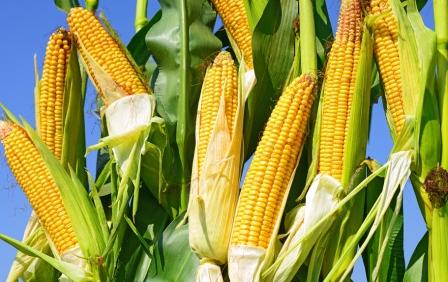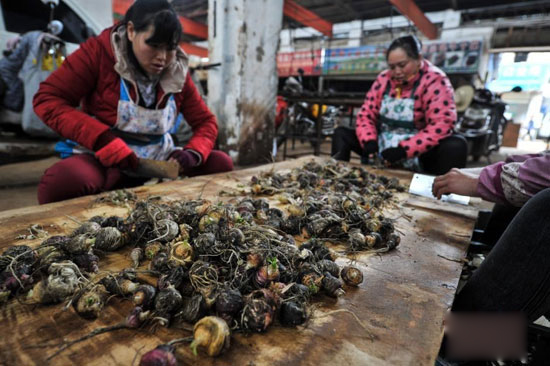If you don't allow me to plant corn, what should I grow?
The state has issued a policy to reduce the corn planting area by 50 million mu (3.33 million hectares) within 5 years, and strive to reduce 10 million mu (670000 hectares) in 16 years. According to the data of the Ministry of Agriculture, the total corn planting area in 15 years is 36.9 million hectares.
At present, corn is faced with many problems, such as large inventory, serious price upside down, great financial pressure, losses of deep processing enterprises, reform and transformation is imminent, so the country wants to reduce the supply and solve the urgent need by reducing corn planting.
But the problem we farmers are concerned about is, if I am not allowed to grow corn, what should I grow?

Wu Jun, a farmer in Jilin Province, has his own view: "the land still has to be planted!" Why don't farmers farm? We still plan to plant corn in 2016, but we can still harvest this. If you plant it well, you can still have some money if you hit 30,000 jin at a time. " He felt that no matter how bad it was, he would still be able to burn some firewood. "if you don't grow corn, you have to spend money on firewood in winter."
Wu Jun calculated an account and changed the planting of soybeans. A plot of land generally produces about 5000 jin, and the market price is about 2 yuan per jin. "Soybean is worthless and its output is still low. if it is contracted land, it will certainly lose money."
What about growing cash crops such as miscellaneous grains? He also thought, "you can grow even if you have technical guidance, but the key is to sell it before you dare to plant it."
I'm sure you feel the same way. it's not because you don't cooperate with national policy, but ultimately depends on whether other crops can outperform corn and can be sold before you dare not to grow corn.
I think that reducing the area of corn cannot be achieved by calling on or setting targets, and there must be corresponding supporting policies to promote it.
This time, the planting area of corn will be reduced mainly in the cool areas of the north, and the planting area of forage corn, soybeans and miscellaneous grains will be increased.
However, northern China is the dominant area for planting corn, even if the corn dry grain is reduced to 80 cents, and more efforts are made on high-yield technology, there are still benefits, at the same time, it is difficult to find which crop can replace corn in large quantities.
Growing soybeans, as Wu Jun said above, is worthless and the yield is low. If the land is contracted, it will lose money.
Growing feed corn is difficult to popularize quickly, at the same time, it will reduce the consumption of ordinary corn and reduce the speed of corn destocking.
The market for growing miscellaneous grains is now basically saturated, and if you grow more, you cannot find a market at all, and it is also difficult to sell grain.
To reduce the planting area of corn and plant other crops, it is necessary to solve the problem of how to connect farmers and the market.
No matter whether it is good or bad, someone will be able to harvest corn this year, which is a kind of guarantee, while other crops basically have to be digested by the market, and it is not certain whether they can be sold or not. Who dares to plant them if there is no support in mind?
The key to allowing farmers to reduce their corn acreage depends on the income and how to let our farmers see what the market really needs.
Marketization has been mentioned many times in policy documents, but at present, it still needs the guidance of government departments to let farmers enter the market. China's information guidance in agriculture is still much worse, and it has done little to guide farmers.
Farmers who only rely on their own experience to arrange planting often have difficulties in selling, because farmers do not understand what the market really needs and do not have the ability to analyze market demand. If farmers all have this vision, farmers will become entrepreneurs, and they will not bother the country.
Functional departments need to let farmers know what is lacking in the market, arrange planting, and also need to carry out regulation and control, where to plant what varieties, how much area to plant, and to avoid swarms of planting, resulting in money that could have been made, but in the end, due to oversupply, they don't make any money.
This is also a way to prevent farmers from relying too much on agricultural subsidies.
To reduce the planting area of corn, you can't reduce it if you want.
- Prev

"Chicken Commander" Huang Fuchang: return to his hometown to start a business and raise layers to return to the villagers to get rich
"Chicken Commander" Huang Fuchang: return to his hometown to start a business and raise layers to return to the villagers to get rich
- Next

The sky-high price of "Plant Viagra" Maka sells cabbage at a price.
The sky-high price of "Plant Viagra" Maka sells cabbage at a price.
Related
- A course of planting techniques and methods on how to grow carrots
- How to plant the latest tulips?
- Is it better to pick tea in the morning or in the afternoon? When is the best time for tea to be picked? what is the third or fifth tea?
- Launch Yuanxiao Happy combination Haocha + Tea Yuan healthy Taste
- Penghu Tourism "Fireworks 20 Parade with You"
- 2022 West Lake Happiness holds "Digital Revitalization Voucher" and draws iphone13 and laptop.
- Banqiao Fuzhou social houses are designed to change start-up combined with police elimination to create a safe and livable environment
- The convenient measure of "mechanical weeding" in Xinbei has been abused and the Agriculture Bureau has imposed heavy penalties on the illegal land consolidation.
- Changgeng University Joins Hands with Four Memory Factories to Rescue Memory Talent Shortage
- The list of Taiwan's top 100 MVP managers is listed by the Director-General of the Farmers' Association of Sanxia District.

